Datasheet
Year, pagecount:2021, 5 page(s)
Language:English
Downloads:4
Uploaded:May 17, 2021
Size:1 MB
Institution:
-
Comments:
Attachment:-
Download in PDF:Please log in!
Comments
No comments yet. You can be the first!Most popular documents in this category
Content extract
Covid-19 vaccination FAQ What is the purpose of the vaccine? How doe s the Pfizer vaccine work ? How doe s the oxford vaccine (als o k nown as the Astra Ze neca vaccine) work ? How will we k now if the vaccine is s afe and e ffe ctive? How is the process for approving a vaccine moving so quickly? What are common s ide e ffects following vaccination? How long will prote ction las t following vaccination? How many vaccines do I ne ed to have? What if I cannot attend an appointment 21 days later for the s econd dose? If I alre ady had Covid-19, s hould I s till get a vaccine? Can s omeone get Covid-19 from the vaccine? Who will be vaccinated firs t? Who cannot have the vaccine at pre sent? Why can’t children get the vaccine? Is the vaccine safe if you are on blood thinne rs? Can I have the vaccine if I am immunos uppressed? Does the vaccine contain egg, gelatine , gluten or any animal products ? Whe re will the vaccine take place? What if I am hous ebound? Should I ge t the vaccine for
influe nza (flu vaccine)? Will we s till need to we ar mas ks and practice social distancing once a vaccine is available ? What is the purpose of the vaccine? The purpose of the vaccine is to reduce severe illness/hospitalisation How doe s the pfize r vaccine work ? Conventional vaccines are produced using weakened forms of the virus. The Pfizer/BioNTech vaccine works by using the the mRNA (genetic code) of the Sars-Cov2 coronavirus. This is injected into the body, where it enters cells and tells them to create the coronavirus spike protein. This prepares the immune system to recognise the spike protein in the future, and to subsequently produce antibodies and to activate T-cells to quickly fight the virus on exposure to Covid-19. Vaccines mimic natural infection, without actually causing the person to become unwell. How does the oxford vaccine (also known as the Astra Zeneca vaccine) work? (Not yet available) Conventional vaccines are produced using weakened forms of the virus.
This vaccine is created from a modified virus that normally causes the common cold in chimpanzees. A tiny bit of genetic material is removed from this virus so that it CANNOT trigger infection in humans. Into this gap scientists have inserted a fragment of the genetic code for coronavirus. This makes up the vaccine, and once injected, it induces an immune response, allowing our body to attack the coronavirus if we get infected with it. The technical term is a ‘viral vector’ vaccine, and this same method has been used for previous vaccines. Please note that this vaccine is not yet available , but we hope that it may be available during the start of the vaccination programme. We will update you once we know more How will we k now if the vaccine is s afe and e ffe ctive? The vaccine currently approved for use in the UK is known as the Pfizer/BioNTech vaccine. It has met strict standards of safety, quality and effectiveness set out by the MHRA (the Medicines and Healthcare products
Regulatory Agency), which follows international standards of safety. So far, tens of thousands of people have been given the Pfizer covid-19 vaccine, and reports of a serious side effect, have been very rare. How is the process for approving a vaccine moving so quickly? Traditionally, it has taken many years to develop a vaccine, and confirm its safety and efficacy. This timeline is substantially shortened for SARS-CoV-2 vaccines in development There are several ways this has been made possible. Firstly, scientists have been studying different types of coronavirus for many years so they are not learning from scratch when they learned about SARS-CoV-2. Researchers across the world have quickly mobilised to share their data with other scientists to work together to discover a vaccine. Secondly, some clinical trials have combined phases 1 and 2 to assess safety and the immune responses. Thirdly, because of the high number of new cases of Covid-19, differences between those who received
the viral vaccine and those who received the placebo vaccine can be measured more quickly than in the absence of a pandemic. And finally, governments across the world have heavily invested in the development of this vaccine to produce large numbers of vaccine doses, even before the final results of the phase 3 trials were available. (nb we now have the results of the phase 3 trials for the Pfizer vaccine, and therefore the vaccine has been approved). Traditionally drug companies would wait for the results of phase 3 trials before manufacturing the vaccine on a large scale. What are common side effects following vaccination? Sore arm Feeling achey Feeling tired A headache Fever – a fever may be present for upto 48 hours post-vaccination It may be advisable to take paracetamol shortly after receiving your vaccine to help prevent some of these common side effects. How long will prote ction las t following vaccination? We are still learning about the duration of
protection following infection with SARS-CoV-2 and it is too early to tell how long protection will last. There are ways to potentially enhance protection following vaccination, such as with booster doses of the vaccine. It is very important to attend for the two doses of the vaccine, 21 days apart. (the 2nd dose is the booster dose) How many vaccines do I need to have? 2 doses, 21 days apart (please note that this advice may change depending on the vaccine being used, for example the oxford vaccine will be given 28 days apart, once available) What if I cannot attend an appointment 21 days later for the second dose? That is ok, book the 2nd dose as soon as you can. If you have 2 doses, LESS THAN 20 days apart, then you will need to repeat the 2nd dose. If I alre ady had Covid-19, s hould I s till get a vaccine? Yes. We do not yet know how long people are protected after having Covid-19 and if protection only lasts for several months, vaccination could be of benefit. Can s omeone get
Covid-19 from the vaccine? No, it is not possible to get Covid-19 from vaccines. Who will be vaccinated first? We have strict instructions to vaccinate patients in the following order; 1. Over 80yrs, frontline healthcare workers and care home staff and residents 2. 75yrs and over 3. 70yrs and over AND shielding patients/clinically extremely vulnerable 4. 65yrs and over 5. 6. 7. 8. 16-65yrs AND in an at risk group 60yrs and over 55yrs and over 50yrs and over Please wait for the surgery to contact you to make an appointment. In time, as more vaccines become available, the programme is likely to expand to vaccinate under 50 yr olds too. Who cannot have the vaccine at present? - Anyone with a previous anaphylactic reaction to any vaccines/drugs/foods - Pregnant ladies or those who are trying to conceive. It is advised to delay trying for a baby for at least 2 months after your second dose of the vaccine. If you find out that you were pregnant when you had the vaccine do not worry. If
you find out after the 1 st dose of the vaccine, let your surgery know, and cancel your appointment for the second dose - Those who are breastfeeding – patients should wait until they have finished breastfeeding - Nb as phase 3 trials continue, new evidence may enable these cohorts of patients to get vaccinated, but for now it is advisable to avoid the vaccination Why can’t children get the vaccine? Currently the vaccine is being targeted to those individuals most at risk. Children have a much lower risk of being badly affected by Covid-19 if they catch it. The Pfizer vaccine has not been approved for under 16 year olds as the vaccine was not tested on children during the trials. Is the vaccine safe if you are on blood thinners ? Those on blood thinners such as warfarin should have well controlled INR levels prior to vaccination. This is because the vaccine is given into a muscle, and injections given into the muscle may bleed more than injections given under the skin. If your INR
level is not well controlled, then it is best to speak to your GP to help with the management of this. Once the warfarin level/INR is well controlled, you will be able to have the vaccination Can I have the vaccine if I am immunosuppressed? It is safe for people who are immunosuppressed to get the vaccine, but it is not yet clear how effective it will be for this group of people. So, if you’re immunosuppressed, it’s very important you continue to follow social distancing rules. It is worth asking those you live with to do this as well. Nb examples of immunosuppressed patients includes those on long-term steroids, on immunosuppressant drugs (including chemotherapy), patients with conditions that compromise the immune system eg HIV, blood cancers, autoimmune conditions etc. Please note that cancer treatments may affect how your body responds to the vaccine, therefore it is worth liaising with your oncology team about the best time to have the vaccine. As we learn more about the
vaccine in this group of patients, we will update our patient information sources. Does the vaccine contain egg, gelatin, gluten or any animal products? No Where will the vaccine take place? We have been fortunate enough to be able to use Heald Green Village Hall for our vaccination clinics. The address is Outwood Rd, Heald Green, Cheadle SK8 3JL What if I am hous ebound? We have been advised that the P fizer vaccine cannot be transported outside our dedicated clinic site once it is delivered. Therefore we are currently unable to vaccinate patients in their own home. This will mean a delay in receiving the vaccine for those who are housebound until a solution is found. We would therefore ask that if you are at all able, you try and get down to the village hall. P lease note that we will inform you as soon as we can start vaccinating housebound patients. Should I ge t the vaccine for influe nza (flu vaccine )? Yes, if you have been invited to get a flu vaccine by your surgery, it is
important to have it, particularly this season when both influenza viruses and SARS-CoV-2 will infect people. We still do not know how these two viruses will interact but people can get infected with both viruses and this will likely cause more severe disease. Reducing the number of people who are admitted to hospital due to severe influenza will also help ensure that the NHS will not be overwhelmed should there be an increase in Covid-19 cases. Will we s till need to we ar mas ks and practice social distancing once a vaccine is available ? We will still need to wear masks and practice social distancing until a large proportion of the population is vaccinated and we are sure that the vaccine provides long-term protection. Initially, we will not have enough vaccines to vaccinate everyone who wants the vaccine and the virus will still be transmitted. If a vaccine not only protects against disease but reduces transmission, and continues to do so for many years, we are likely to reach a
state of ‘herd immunity’ when masks and physical distancing will no longer be required. Herd immunity is when most of a population is immune to an infectious disease, and this then provides indirect protection (or herd immunity) to those who are not immune to the disease
influe nza (flu vaccine)? Will we s till need to we ar mas ks and practice social distancing once a vaccine is available ? What is the purpose of the vaccine? The purpose of the vaccine is to reduce severe illness/hospitalisation How doe s the pfize r vaccine work ? Conventional vaccines are produced using weakened forms of the virus. The Pfizer/BioNTech vaccine works by using the the mRNA (genetic code) of the Sars-Cov2 coronavirus. This is injected into the body, where it enters cells and tells them to create the coronavirus spike protein. This prepares the immune system to recognise the spike protein in the future, and to subsequently produce antibodies and to activate T-cells to quickly fight the virus on exposure to Covid-19. Vaccines mimic natural infection, without actually causing the person to become unwell. How does the oxford vaccine (also known as the Astra Zeneca vaccine) work? (Not yet available) Conventional vaccines are produced using weakened forms of the virus.
This vaccine is created from a modified virus that normally causes the common cold in chimpanzees. A tiny bit of genetic material is removed from this virus so that it CANNOT trigger infection in humans. Into this gap scientists have inserted a fragment of the genetic code for coronavirus. This makes up the vaccine, and once injected, it induces an immune response, allowing our body to attack the coronavirus if we get infected with it. The technical term is a ‘viral vector’ vaccine, and this same method has been used for previous vaccines. Please note that this vaccine is not yet available , but we hope that it may be available during the start of the vaccination programme. We will update you once we know more How will we k now if the vaccine is s afe and e ffe ctive? The vaccine currently approved for use in the UK is known as the Pfizer/BioNTech vaccine. It has met strict standards of safety, quality and effectiveness set out by the MHRA (the Medicines and Healthcare products
Regulatory Agency), which follows international standards of safety. So far, tens of thousands of people have been given the Pfizer covid-19 vaccine, and reports of a serious side effect, have been very rare. How is the process for approving a vaccine moving so quickly? Traditionally, it has taken many years to develop a vaccine, and confirm its safety and efficacy. This timeline is substantially shortened for SARS-CoV-2 vaccines in development There are several ways this has been made possible. Firstly, scientists have been studying different types of coronavirus for many years so they are not learning from scratch when they learned about SARS-CoV-2. Researchers across the world have quickly mobilised to share their data with other scientists to work together to discover a vaccine. Secondly, some clinical trials have combined phases 1 and 2 to assess safety and the immune responses. Thirdly, because of the high number of new cases of Covid-19, differences between those who received
the viral vaccine and those who received the placebo vaccine can be measured more quickly than in the absence of a pandemic. And finally, governments across the world have heavily invested in the development of this vaccine to produce large numbers of vaccine doses, even before the final results of the phase 3 trials were available. (nb we now have the results of the phase 3 trials for the Pfizer vaccine, and therefore the vaccine has been approved). Traditionally drug companies would wait for the results of phase 3 trials before manufacturing the vaccine on a large scale. What are common side effects following vaccination? Sore arm Feeling achey Feeling tired A headache Fever – a fever may be present for upto 48 hours post-vaccination It may be advisable to take paracetamol shortly after receiving your vaccine to help prevent some of these common side effects. How long will prote ction las t following vaccination? We are still learning about the duration of
protection following infection with SARS-CoV-2 and it is too early to tell how long protection will last. There are ways to potentially enhance protection following vaccination, such as with booster doses of the vaccine. It is very important to attend for the two doses of the vaccine, 21 days apart. (the 2nd dose is the booster dose) How many vaccines do I need to have? 2 doses, 21 days apart (please note that this advice may change depending on the vaccine being used, for example the oxford vaccine will be given 28 days apart, once available) What if I cannot attend an appointment 21 days later for the second dose? That is ok, book the 2nd dose as soon as you can. If you have 2 doses, LESS THAN 20 days apart, then you will need to repeat the 2nd dose. If I alre ady had Covid-19, s hould I s till get a vaccine? Yes. We do not yet know how long people are protected after having Covid-19 and if protection only lasts for several months, vaccination could be of benefit. Can s omeone get
Covid-19 from the vaccine? No, it is not possible to get Covid-19 from vaccines. Who will be vaccinated first? We have strict instructions to vaccinate patients in the following order; 1. Over 80yrs, frontline healthcare workers and care home staff and residents 2. 75yrs and over 3. 70yrs and over AND shielding patients/clinically extremely vulnerable 4. 65yrs and over 5. 6. 7. 8. 16-65yrs AND in an at risk group 60yrs and over 55yrs and over 50yrs and over Please wait for the surgery to contact you to make an appointment. In time, as more vaccines become available, the programme is likely to expand to vaccinate under 50 yr olds too. Who cannot have the vaccine at present? - Anyone with a previous anaphylactic reaction to any vaccines/drugs/foods - Pregnant ladies or those who are trying to conceive. It is advised to delay trying for a baby for at least 2 months after your second dose of the vaccine. If you find out that you were pregnant when you had the vaccine do not worry. If
you find out after the 1 st dose of the vaccine, let your surgery know, and cancel your appointment for the second dose - Those who are breastfeeding – patients should wait until they have finished breastfeeding - Nb as phase 3 trials continue, new evidence may enable these cohorts of patients to get vaccinated, but for now it is advisable to avoid the vaccination Why can’t children get the vaccine? Currently the vaccine is being targeted to those individuals most at risk. Children have a much lower risk of being badly affected by Covid-19 if they catch it. The Pfizer vaccine has not been approved for under 16 year olds as the vaccine was not tested on children during the trials. Is the vaccine safe if you are on blood thinners ? Those on blood thinners such as warfarin should have well controlled INR levels prior to vaccination. This is because the vaccine is given into a muscle, and injections given into the muscle may bleed more than injections given under the skin. If your INR
level is not well controlled, then it is best to speak to your GP to help with the management of this. Once the warfarin level/INR is well controlled, you will be able to have the vaccination Can I have the vaccine if I am immunosuppressed? It is safe for people who are immunosuppressed to get the vaccine, but it is not yet clear how effective it will be for this group of people. So, if you’re immunosuppressed, it’s very important you continue to follow social distancing rules. It is worth asking those you live with to do this as well. Nb examples of immunosuppressed patients includes those on long-term steroids, on immunosuppressant drugs (including chemotherapy), patients with conditions that compromise the immune system eg HIV, blood cancers, autoimmune conditions etc. Please note that cancer treatments may affect how your body responds to the vaccine, therefore it is worth liaising with your oncology team about the best time to have the vaccine. As we learn more about the
vaccine in this group of patients, we will update our patient information sources. Does the vaccine contain egg, gelatin, gluten or any animal products? No Where will the vaccine take place? We have been fortunate enough to be able to use Heald Green Village Hall for our vaccination clinics. The address is Outwood Rd, Heald Green, Cheadle SK8 3JL What if I am hous ebound? We have been advised that the P fizer vaccine cannot be transported outside our dedicated clinic site once it is delivered. Therefore we are currently unable to vaccinate patients in their own home. This will mean a delay in receiving the vaccine for those who are housebound until a solution is found. We would therefore ask that if you are at all able, you try and get down to the village hall. P lease note that we will inform you as soon as we can start vaccinating housebound patients. Should I ge t the vaccine for influe nza (flu vaccine )? Yes, if you have been invited to get a flu vaccine by your surgery, it is
important to have it, particularly this season when both influenza viruses and SARS-CoV-2 will infect people. We still do not know how these two viruses will interact but people can get infected with both viruses and this will likely cause more severe disease. Reducing the number of people who are admitted to hospital due to severe influenza will also help ensure that the NHS will not be overwhelmed should there be an increase in Covid-19 cases. Will we s till need to we ar mas ks and practice social distancing once a vaccine is available ? We will still need to wear masks and practice social distancing until a large proportion of the population is vaccinated and we are sure that the vaccine provides long-term protection. Initially, we will not have enough vaccines to vaccinate everyone who wants the vaccine and the virus will still be transmitted. If a vaccine not only protects against disease but reduces transmission, and continues to do so for many years, we are likely to reach a
state of ‘herd immunity’ when masks and physical distancing will no longer be required. Herd immunity is when most of a population is immune to an infectious disease, and this then provides indirect protection (or herd immunity) to those who are not immune to the disease
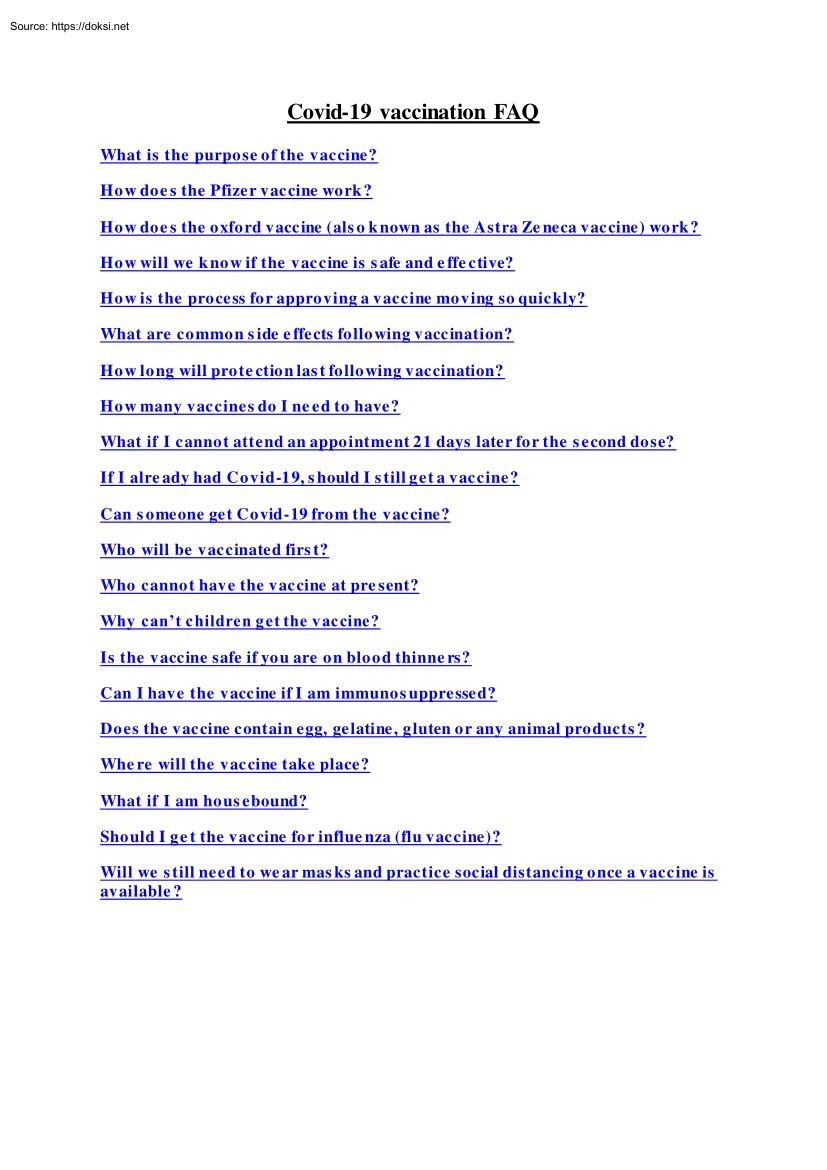
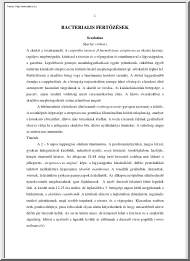
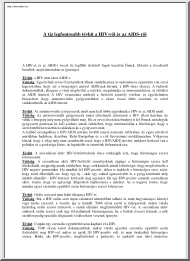
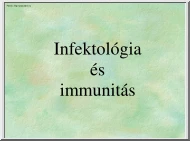
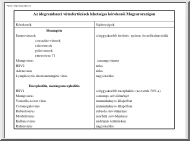
 When reading, most of us just let a story wash over us, getting lost in the world of the book rather than paying attention to the individual elements of the plot or writing. However, in English class, our teachers ask us to look at the mechanics of the writing.
When reading, most of us just let a story wash over us, getting lost in the world of the book rather than paying attention to the individual elements of the plot or writing. However, in English class, our teachers ask us to look at the mechanics of the writing.